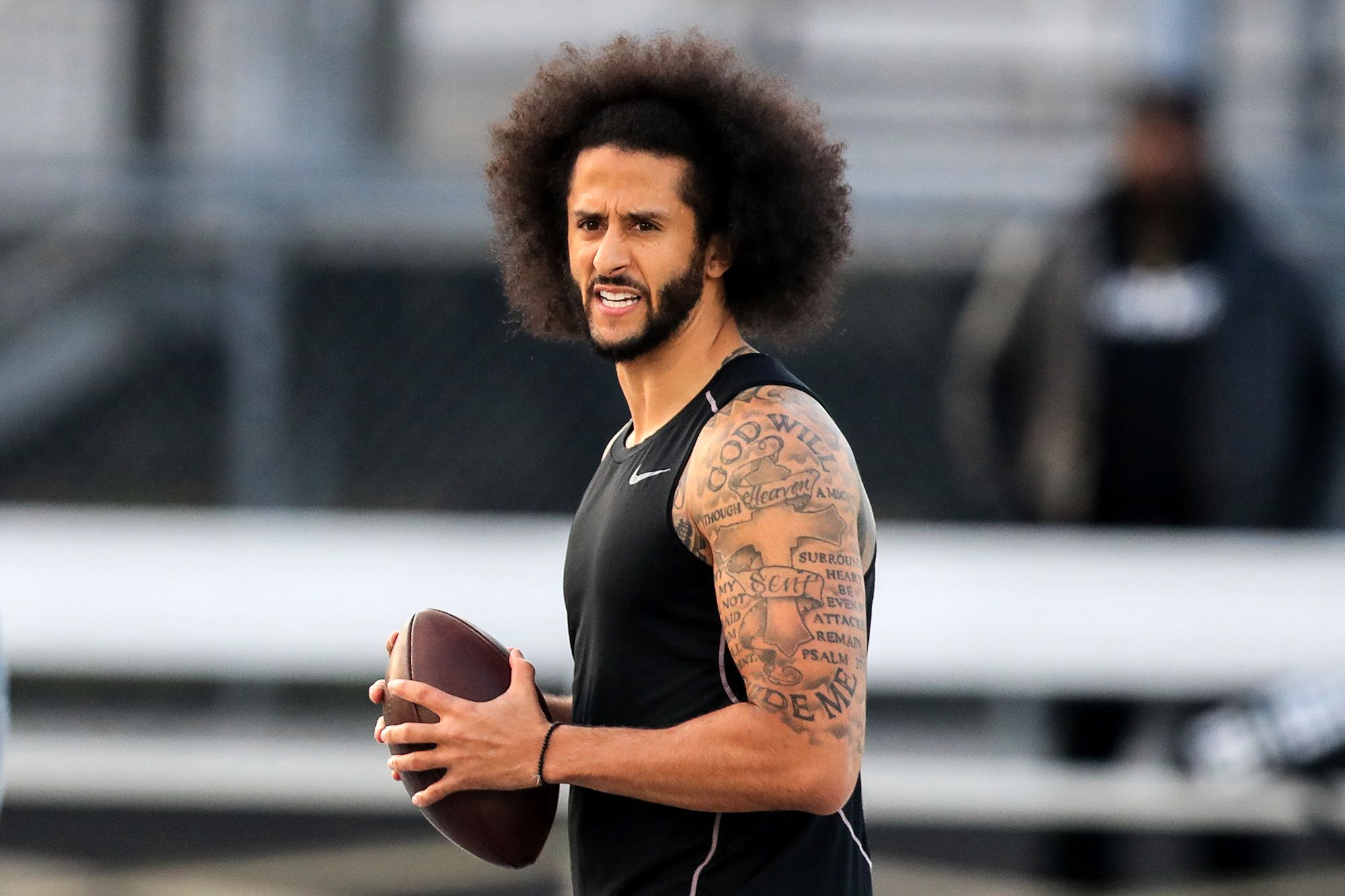In the world of professional sports, certain names transcend their on-field achievements, becoming symbols of cultural significance. Colin Kaepernick is one of those names. The former NFL quarterback, who has not played in a league game since 2016, remains one of the most divisive yet influential figures in the history of the sport. His protest against racial injustice and police brutality during the national anthem ignited a firestorm, leading to his eventual departure from the NFL under controversial circumstances.
However, in 2025, Ryan Clark, a former safety for the Pittsburgh Steelers, has reignited the conversation surrounding Kaepernick’s legacy, claiming that if Kaepernick were still playing today, he would be the NFL’s most talked-about and recognized player, surpassing even the likes of Patrick Mahomes and Joe Burrow.
In a bold and unflinching statement, Clark said, “If Colin Kaepernick was still in the NFL today, he’d be the face of the league.” This powerful declaration sets the stage for a critical reexamination of Kaepernick’s career, his cultural impact, and the NFL’s decision to turn its back on a player who, Clark argues, would have been one of the most electrifying and influential stars in the league.
Kaepernick’s Talent: More Than Just a Quarterback
Before the controversy surrounding his protest, Colin Kaepernick was already a dynamic and highly promising quarterback. He led the San Francisco 49ers to a Super Bowl appearance in 2013, showcasing not only his ability as a passer but his remarkable athleticism, particularly as a dual-threat quarterback. His combination of arm strength, accuracy, and mobility made him one of the most exciting players in the NFL.
However, Kaepernick’s football career would take a dramatic turn in 2016, when he began kneeling during the national anthem as a protest against racial injustice and police brutality. This act of defiance, while peaceful, sparked fierce debates across the nation, dividing public opinion on the matter. Despite his undeniable talent, Kaepernick found himself increasingly marginalized, with many in the NFL and beyond questioning whether he would ever play again.
Ryan Clark’s assertion that Kaepernick would have been “the face of the league” in 2025 speaks to more than just his football abilities. Kaepernick’s potential transcended the gridiron; his leadership, personality, and influence off the field would have propelled him to a level of recognition that few athletes achieve.
The Cultural Impact
Clark’s statement highlights Kaepernick’s cultural significance in a way that goes beyond statistics. While Patrick Mahomes is celebrated for his incredible skills and Joe Burrow for his poise and leadership, neither player has the same level of cultural influence that Kaepernick does. His decision to kneel during the anthem ignited a global movement, and his activism has continued to inspire a new generation of athletes, artists, and individuals fighting for social justice.

The Black Lives Matter movement, which gained considerable momentum following Kaepernick’s protest, continues to shape conversations around race and inequality. The NFL has since faced immense pressure to reckon with its own role in perpetuating racial injustice, particularly as it relates to the treatment of its Black players. Had Kaepernick remained in the league, he would have been at the forefront of this conversation, continuing to use his platform to advocate for change, while simultaneously dominating on the field.
Clark’s assertion that Kaepernick would have been the NFL’s biggest star today is rooted in the idea that Kaepernick’s presence would have been impossible to ignore. With his combination of talent, leadership, and cultural relevance, he would have aligned perfectly with the NFL’s growing desire to address racial equality, making him an even more prominent figure than Mahomes or Burrow.
The NFL’s Missed Opportunity
One of the most significant aspects of Clark’s comments is his challenge to the NFL: what if the league had recognized Kaepernick’s value, both as a player and as a cultural leader? What would the NFL look like today if Kaepernick had been embraced instead of sidelined?
Many believe that Kaepernick’s absence from the NFL is not simply the result of a protest; rather, it is seen by some as the league’s refusal to accept a player who could have been more than just an athlete. Instead, Kaepernick was viewed by some as a threat to the status quo, an inconvenient figure who challenged the NFL’s long-standing policies and its relationship with corporate sponsors and fanbases.
In a 2025 where players are increasingly using their platforms to advocate for social change, Kaepernick’s presence would have provided the NFL with an opportunity to lead that conversation, rather than be forced to react to it. The NFL, which has recently tried to repair its image regarding social justice issues, might have been in a far better position today if Kaepernick had been given the chance to play and continue his activism from within the league.
The Legacy of Colin Kaepernick
Colin Kaepernick’s legacy is one that will continue to be debated for years to come. While he remains one of the most polarizing figures in the history of the NFL, there is no denying the monumental impact he has had on the sport and beyond. His activism has sparked important conversations about racial injustice, and his willingness to stand up for what he believes in has inspired countless others to use their platforms for social change.
Kaepernick’s departure from the NFL in 2016 may have been the result of his protest, but it also marked the loss of one of the most exciting and potentially transformative players the league had ever seen. Ryan Clark’s comments suggest that, had the NFL embraced Kaepernick, the sport would have been better for it. The league may have not only gained a superstar quarterback, but also an icon capable of bridging the gap between sports and activism in a way that few athletes ever could.
As we look back on the NFL’s treatment of Kaepernick, it’s clear that his absence is not just a missed opportunity for the league; it’s a missed opportunity for the game itself. The NFL today might look very different if Kaepernick had been given the chance to continue his career. While we can never know for sure, Ryan Clark’s bold claim forces us to ask: what if?
Conclusion: Time to Rewrite History

In 2025, the NFL finds itself at a crossroads. The league has come a long way in addressing social justice issues, but as Ryan Clark’s remarks make clear, there’s still a sense of unfinished business when it comes to Colin Kaepernick. The former quarterback may not have played a game in nearly a decade, but his influence on the league and the broader sports world is undeniable. The NFL missed a chance to make Kaepernick the face of the league, and now it’s up to the players, analysts, and fans to decide what that missed opportunity means for the future of the sport.
Clark’s bold statement may be just the catalyst the league needs to finally acknowledge the impact Kaepernick could have had—not just on the field, but on the culture of the game itself. Perhaps it’s time for the NFL to rewrite history and recognize the player they let slip away.





